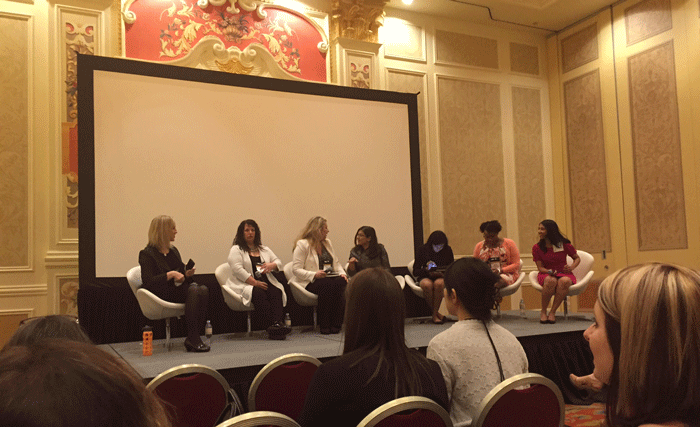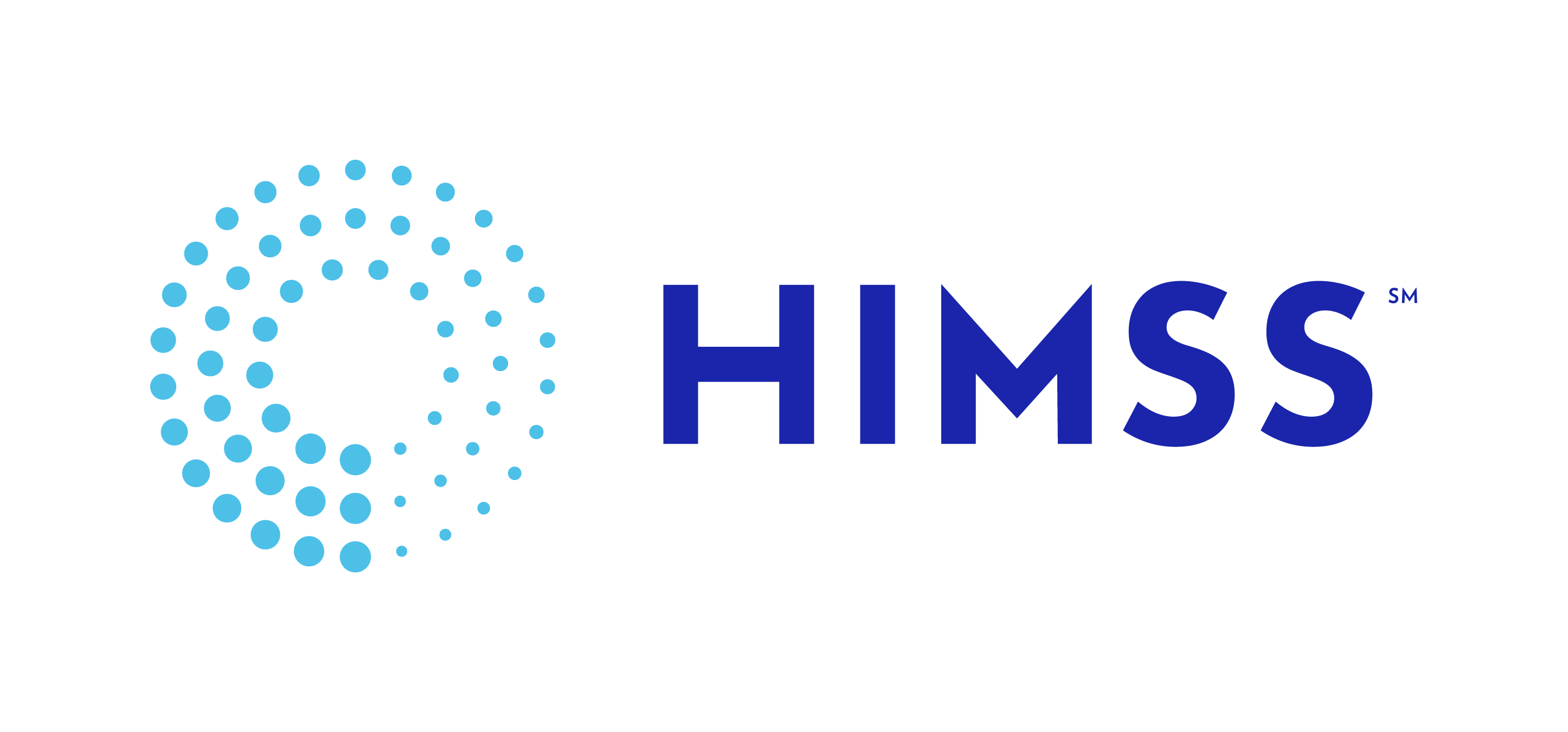Spring 2016HIMSS16 Disruptive Women in Healthcare Session
Advice from Female Healthcare Leaders
by Bella Zaghi
Fifty years ago women were encouraged to be submissive and stay at home tending to the family. It was rare to see women in the workplace. Flash forward, in 2016, not only are women encouraged to work but they are making strides and advancements in every industry, and in particular in Healthcare.
I had the privilege of attending the Disruptive Women in Healthcare educational session at HIMSS16. This session panel featured six successful female professionals and moderator, Robin Strongin, Founder of Disruptive Women in Healthcare. The panelists included:
- Darla Brown, Founder and CEO, Me
- Nancy Green, Global Practice Lead – Healthcare Strategy & Thought Leadership, Verizon Enterprise Solutions
- Celia Pohani Huber, Director Silicon Valley Office Leader, Women’s Initiative, Mckinsey & Company
- Susan Philip, Healthcare Management Consultant, Milliman, Inc
- Siv Sambasivam, Head of Business Development, GoodRx
- Lisa Suennen, Partner, Venture Valkyrie
The format of the session was conversational with the moderator asking the panelists questions relating to women and career growth. The first question the moderator asked was if the panelists were more opportunistic or strategic in their careers.
Lisa Suennen, “when one is younger he/she can't help but be opportunistic, because you don't know what you want to be when you grow up. As you get older you start looking within to be more strategic.” After working for several years Lisa left her firm strategically to start a venture fund. She has begun focusing on her personal mission.
In contrast, Celia Pohani Huber said she was more strategic when she was younger and now she’s more opportunistic. Most women are under-sponsored and lack connections to people who are in positions to create opportunities for them. For this reason, networking is important early on in a woman’s career. Similarly, Susan Philip started off her career trying to be strategic. However, she thinks she was narrow in her approach and was not open to opportunities that came up.
Darla Brown was also very strategic then she became opportunistic. She went to the library, before there was the Internet, and did research on potential careers. She decided to major in computer science and math and decided on her career path. Then once she graduated she was opportunistic and took any coding job she could get.
Nancy Green believes that once you’re on the job, you have to be opportunistic on a daily basis. At the same time it is important to think on your feet and do it on a strategic way.
Another interesting question addressed to the panelists was to share any missteps they had during their career.
Nancy said that she hates the word “misstep.” Everything leads to a path. One thing she learned was to “not trust the wrong person with her career and family. Listen to your gut and do more research.” She got an offer to be COO for a brand new company. She didn't do enough research to learn about the funding for the company before she took the offer and later it bankrupted. There are several start-up companies and if you want to do research on the viability of a company, find and ask a sponsor (mentors, etc.) that knows what they are talking about and they can guide you. Not every open door is a door to walk through.
Lisa said she stayed too long in places where she knew she was done. She should have bailed earlier from jobs, experiences and relationships that were not fruitful. “Have confidence in your gut. What's the argument that you are making or the thing you keep coming back to? That is your instinct.”
Celia said when she was on maternity leave she thought she was handing off her projects to someone she can trust, but she didn't. When she went out she wasn't thinking of the few things that were important.
Siv was working at a firm and she thought they were making green houses in Mexico and went back to Mexico six months later and realized nothing was being built. When you scale up to other projects and hand off your work you must verify that the work is actually being done. Darla asserted that one should reframe a misstep when it happens in order to learn from it.
Later in the discussion Lisa said women are not represented as thought leaders and speakers, if you are responsible of an event make a point of having female speakers. “We have to teach our daughters that any career is possible and make it a point of demonstrating that to them. Girls shouldn’t be channeled to traditional female roles but rather should be allowed to explore all careers and find their path early on.
Celia added that research shows that there is an ambition gap, women don't think of going to the C-Suite because they don't feel like they can do the job.”
The conversation then veered into promotions and raises. Lisa said if you don't ask for a promotion or raise then you won't get it. “Most people are afraid to ask, but if you don’t ask no one will give it to you. A woman should not tolerate a company that doesn't pay men and women equally. If one finds herself in that situation she should speak up.” Siv then added if you can’t get the raise or promotion then see if you can get flexibility. Women are capable of juggling multiple things at once, so instead of getting paid by the amount of hours you work see if you can get paid by the projects you get completed. This can be known as “value based work reimbursement.”
At the end the session, Darla summarized, “If you don't have confidence, you have to generate confidence. You don't have to know everything, but you should have confidence that you can figure it out.” All in all, this was a very informative and inspirational session at HIMSS16.

